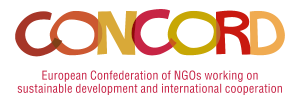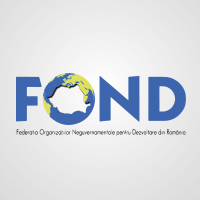Trialog
2010 - 2015The last phase of the project, TRIALOG V, started on 1 October 2012 with a project duration of three years. Since the beginning of TRIALOG in 2000 a lot changed within the scope, mandate and target group of the project. Most of the 13 countries that have joined the EU since were receiver countries of Official Development Assistance until they joined the EU and had to create development cooperation structures, policies and programmes from scratch. To support this process, TRIALOG lead activities in different fields including capacity building, information distribution, policy support, networking and advocacy on national and European level.
Over the years, TRIALOG’s role changed towards an accompanying supporter by networking, giving advice, providing good examples, organising exchange and study visits and offering specialised capacity building. In 2015, during the last year of the project, TRIALOG engaged in the European Year for Development and ensured a smooth handover within the broad CONCORD family as well as future collaborations for after the finalisation of the TRIALOG project in September 2015.
Activities
TRIALOG activities aimed to increase development expertise of CSOs in the enlarged EU. They were complementary with the activities of EU13 development CSO platforms and their members and designed through a participatory process.
- Partnership Fairs: The Partnership Fairs facilitated partnerships, co-operation and exchange among civil society organisations at an European level with the focus on joint projects and programmes for Development Education and Awareness Raising (DE/AR) and Development Cooperation. TRIALOG organised 5 different fairs back in 2006, 2010, 2011, 2013 and 2015.
- Global Networking: TRIALOG promoted a continued and deepened East-West-South trialogue through different approaches, such as conferences, professional exchanges and project visits.
- Study visits: During the Study Visits to Brussels, participants from EU13 development NGOs gained first-hand experience of the EU policy making environment and met with relevant stakeholders in the EU institutions and European development networks.
- Capacity building: Accompanied and with the support of TRIALOG, each platform designed its own capacity building plan and implemented at least two capacity building activities per year. In each platform, TRIALOG supported a Liaison Officer who focuses on developing the annual capacity building work plan for the platform on networking activities and on following central development policy issues. For the liaison officers TRIALOG offered a special annual training: the Training of Multipliers. Throughout the activities, an emphasis was put on mutual sharing and peer learning. It directly involved participants in the activities and provided added value through their contribution as peer supporters. This approach ensured a broad and sustainable impact of the activities. You can have a look at the infographic explaining the capacity building activities carried out during the 5th phase of the projet and the one detailing them in the first 18th months of the project.
- Platform Strategy meetings: This annual meeting (formerly called Central Training) brought together representatives from EU13 development CSO platforms to deepen cooperation, share experiences and to create opportunities for joint action. It also provided a space for participants to deepen their knowledge about development education and certain development cooperation issues.
- Presidency support: TRIALOG has been offering different levels of support to the platforms in the EU13 countries that have held the presidency, starting with Slovenia in the first half of 2008. Preparation events that have been offered in the past include:
- exchanges with individuals involved in previous presidency periods
- support during the drafting process of the EU Presidency project, funded by the European Commission
- support in the coordination with the European Commission
- workshops and seminars
- On top, TRIALOG was also organising events, supporting partner searches for joint projects, providing resources (like this factsheet for the 10th year of the EU13 in the EU) and contacts of experts and trainers.



























